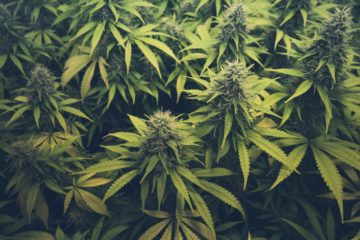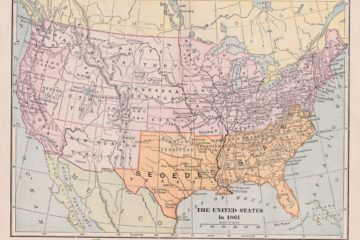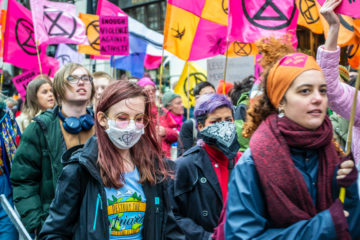
Marijuana Legalization by Blunt Force: A Decade of US Policymaking through Ballot Initiatives
Election day 2020 was another big moment for drug policy reform in the US as voters across diverse states rejected the status quo and endorsed liberalizing drug laws. Arizona, Montana, New Jersey and South Dakota legalized marijuana for recreational purposes as the news proclaimed voters had “just said no to America’s war on drugs,” calling it “a banner year for drug decriminalization.” That election day brought significant wins for drug policy reform is not new. Beginning in 2012 with Colorado and Washington state, 13 out of the 15 states that have legalized recreational cannabis thus far have done so through ballot measures.[1] In 2014, Alaska and Oregon followed suit along with Nevada, Massachusetts, Maine and California in 2016 and Michigan …
Italy’s Other Wave: Protests during the Second Lockdown
Italy was the first Western democracy to impose a country-wide lockdown in response to the COVID-19 pandemic. Despite successfully curbing the number of infections in the first half of 2020, Italy saw its cases increase again in October, prompting Prime Minister Giuseppe Conte and local governments to announce new restrictions to curb the cresting second wave. Despite the clear memory of the significant death toll and warnings of the dangerous winter to come, however, these announcements have been met with opposition. On the evening of the 23rd October, thousands gathered in the streets of Naples to protest against the forced closure of shops and restaurants and the threat of a local lockdown. A group of about 300 people—including youth, extremist political groups, and football hooligans—escalated into a violent protest, attacking police officers, burning cars, and vandalizing private …

Comparing the 1860 and 2020 Elections: Is the USA Heading for Another Civil War?
All summer, as protests raged over the United States, fears grew that an increasingly polarised United States was heading for another civil war. There was great worry over violence erupting across the land, and a distinct sense that there were at least two rival and distinct Americas in the country: Red America and Blue America. Political movements such as the Lincoln Project and the Wide Awake Boys explicitly made comparisons between the present time and the Civil War-era. Almost two thirds of Americans, in May 2020, believed that the country was close to civil war. The 2020 presidential election might therefore have the same effect as that of 1860 election: then, the election of Abraham Lincoln as President persuaded the …
How Politicizing the Postal Service Got America in Trouble Before
As the coronavirus continues to spread across the United States, questions concerning American voters’ ability to cast their ballots safely in person on 3 November became increasingly urgent this election season. Despite his own record of voting by mail, President Trump has frequently attacked mail-in voting, making unfounded claims about the potential for fraud and playing favorites to suggest its validity only in states with Republican governors like Florida. Depicting vote by mail as a Democratic tactic to steal his re-election, Trump’s campaign even filed an ultimately dismissed suit in battleground Nevada to stop the state from sending absentee ballots out to all active voters. However, mail-in voting has historically not been such a partisan issue. Even now, Fox News …
October Surprise: How Foreign Policy Can Shape US Presidential Elections
The president’s recent diagnosis with Covid-19 sent the US presidential election race into a tailspin. As Donald Trump and Joe Biden jockey to regain control of the media narrative at a crucial phase of the campaign, speculation about a possible “October surprise” is widespread. Today, the term refers to any news story that breaks late in an election cycle and has the potential to affect the outcome of the election. Yet its origins are firmly rooted in foreign policy. In particular, the phrase describes a sitting president’s alleged propensity to manipulate events to boost their electoral prospects. The president’s recent tweet calling for all remaining US forces in Afghanistan to return home by Christmas has fueled suspicions that Trump is playing politics …
Mongolia’s Debt Overhang Amidst a Pandemic
As the economic effects of the COVID-19 pandemic unfold, the most severe casualties of “The Great Lockdown” are resource-dependent economies with limited institutional capacity to respond to the crisis. Their supply chains have been cut off, their markets are disrupted, and their investors are crowding out. Many of these countries have high external debt and an obligation to repay it in the medium term or they will face the trilemma of registering a double-digit growth, accruing further debt, or defaulting. Come 2021, Mongolia, a superlatively resource-dependent economy, will be at the center of this trilemma. The immediate cause of Mongolia’s current state is its inconsistent fiscal expenditure and its undiversified mining economy. Over the years, fiscal mismanagement of the previous …

Lockdown and the Climate Crisis
In 2020, lockdowns around the world have reduced energy use and carbon emissions on an unprecedented scale. However, the current COVID-19 outbreak may be a double-edged sword in the fight against climate change. Individual countries are imminently due to report their carbon reductions, as outlined in the United Nations-brokered Paris Agreement. Although pre-Coronavirus crisis global greenhouse gas (GHG) emissions are expected have grown by 1.9%, recent CO₂ calculations in Europe are predicting a surprising scenario: countries may actually hit their stated reduction goals. For instance, the German climate target for 2020, which until February was considered unattainable, should now be met. Due to this year’s mild winter, and, above all, the Coronavirus crisis, the target of 40% CO₂ savings—unlike climate change targets …
The Crisis of Migrant Labour in India during Covid-19
The Indian Government’s initial response to Covid-19—a stringent nationwide lockdown which commenced with an intimation period of only “four hours”—was hailed by the World Health Organisation as “timely and tough.” However, this international acclaim overlooked the disastrous result of the rushed lockdown on India’s migrant workforce. For them, the restrictions imposed by the lockdown has endangered their access to healthcare, housing, food and social security, which has further pushed their lives in precarity. Immediate action is needed from the Central Government to tend to their current needs and provide them with long-term economic stability. Statistics of Migrant Labour in India As per the census of 2011, India has approximately 453.6 million internal migrants. From this, the migrant workforce is estimated to be around 100 million. The Economic Survey of 2017 estimated …









